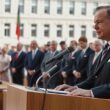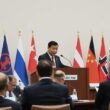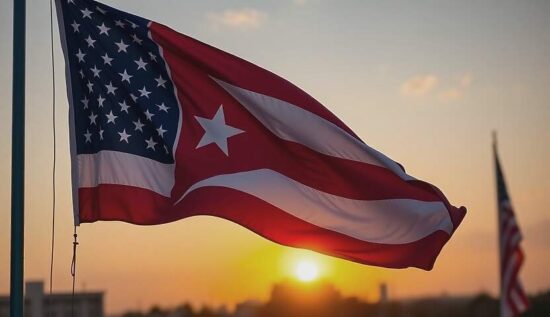The US government, led by outgoing President Joe Biden, has removed Cuba from the list of states that support terrorism. The Caribbean island had been on the list since January 2021, alongside Iran, North Korea, and Syria, under the previous administration of Donald Trump. Biden justified the decision, stating that Cuba had not supported international terrorism in any way over the past six months and that the government in Havana had assured it would not support such acts in the future.
This move was announced by the news agency AP, citing a White House representative, who said it would facilitate negotiations over the release of a “significant number of political prisoners.” The agency also noted that the step was seen as symbolic, and that Biden’s successor could potentially reverse it, citing the designated US Secretary of State Marco Rubio, a long-time critic of Cuba and a proponent of sanctions.
Reactions from Cuba
In Havana, the gesture from the outgoing US administration was met with cautious joy. President Miguel Díaz-Canel thanked all those who had contributed to this decision, stating that Cuba should never have been on the list. On the social media platform X, the politician wrote, “This decision is going in the right direction, but it is late and has a limited impact. Because the blockade and the majority of extreme measures, which have been in place since 2017, to strangle our economy and create bottlenecks for our people, remain in force.”
Díaz-Canel spoke of a persistent economic war and interference in the internal affairs of his country by the US. At the same time, he expressed openness to a “respectful and civilized” relationship with Washington.
On the same day, Havana announced the release of 553 prisoners, which was attributed to the Catholic Jubilee Year declared by Pope Francis. In the corresponding statement from the Cuban Foreign Ministry, it was stated that the prisoners were convicted of various crimes and that Díaz-Canel had announced the gesture in a letter to the Pope in early January, with the release to be carried out gradually.
Many Latin American states welcomed the decision to remove Cuba from the list of terrorism-supporting states. Many state and government leaders in the region applauded the move, with Cuban Foreign Minister Bruno Rodríguez thanking partner countries, international and regional organizations, religious communities, and the diaspora for their efforts and urging them to continue their pressure to have the blockade against Cuba ultimately lifted.
Reactions from Colombia
Colombian President Gustavo Petro praised his outgoing US counterpart for his constant search for dialogue. The partial lifting of blockades, he said, was a significant progress. With a glance at Trump’s upcoming administration, Petro warned, “The US has two modes of interaction with Latin America: either dialogue with diversity or violent imposition.”
On the social media platform X, the politician expressed his concern that the new US administration might opt for the latter, saying that without dialogue and recognition of Latin American diversity, the US would lose an entire continent.
The Colombian Foreign Ministry also welcomed the move, thanking the Cuban government for its efforts towards inner-Colombian peace, as Cuba had more than once served as a venue for negotiations with various guerrillas.
Reaction from Venezuela
Venezuelan Foreign Minister Yván Gil congratulated Cuba on Telegram, while also speaking of the limited positive impact. The diplomat called for an immediate end to the economic and financial blockade that had been in place for more than 60 years and was opposed by the international community.
The island state had been a victim of terrorism in the past, Gil said, and Cuba had often mediated in conflicts and helped other peoples of the world.





